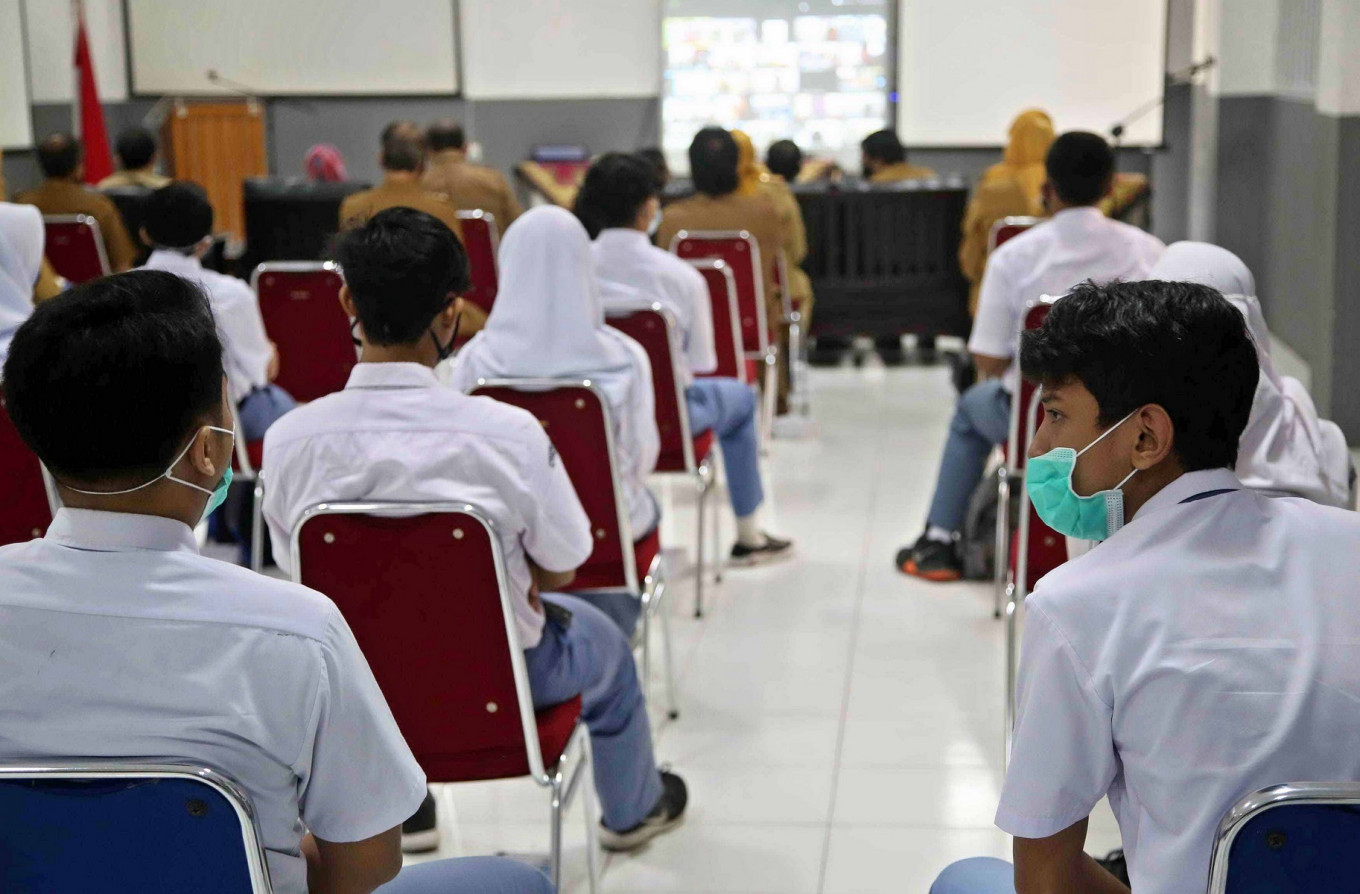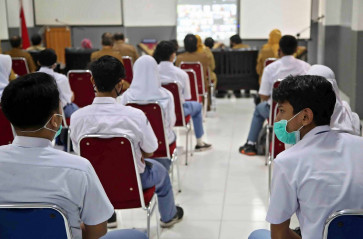Popular Reads
Top Results
Can't find what you're looking for?
View all search resultsPopular Reads
Top Results
Can't find what you're looking for?
View all search resultsIn Indonesia, sizeable budget not translating into quality education: Report
Change text size
Gift Premium Articles
to Anyone
A
lthough Indonesia's education system has grown more decentralized, not all local administrations have allocated their education budgets as required, with much of their spending going to teacher salaries instead of learning programs, a new report released Wednesday has found.
A World Bank report, titled Revealing How Indonesia’s Subnational Governments Spend Their Money on Education, found that 112 of the country's 508 cities and regencies did not allocate 20 percent of their budget on education in 2018. This was also the case with 12 out of the 34 provinces in the country.
"Local administrations have varying capacities in allocating and executing budgets," said World Bank economist Rythia Afkar, who was among those who worked on the report, during the launch of the document on Wednesday.
She said that during the planning stage, most local administrations tended to prioritize quantity, such as the number of existing teachers, rather than the quality, such as the number of competent teachers.
Around 60 percent of the national education budget, which accounts for 20 percent of the state budget as mandated by the Constitution, is distributed to local administrations nationwide.
In 2020, the government allocated Rp 508 trillion (US$35.9 billion) on education, Rp 306 trillion of which was transferred to local administrations. The 2021 state budget, meanwhile, earmarks Rp 550 trillion for education.
Read also: Govt, House pass Indonesia’s 2021 state budget: What you need to know


















